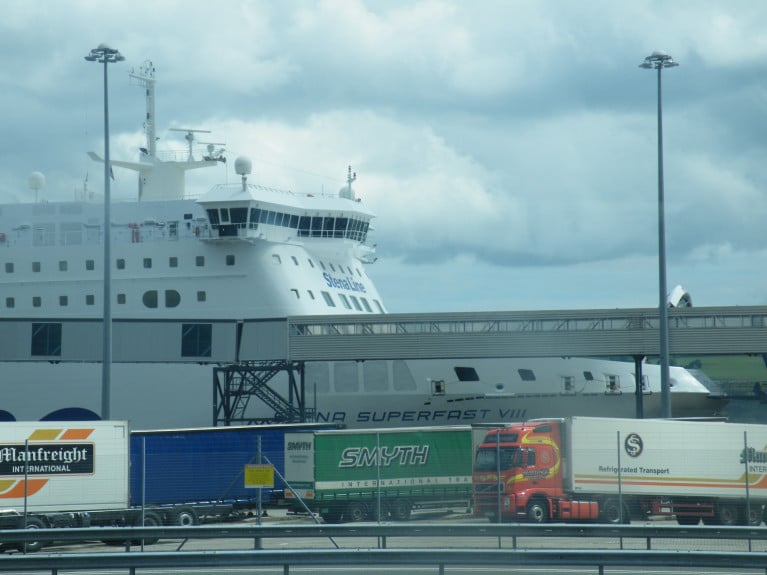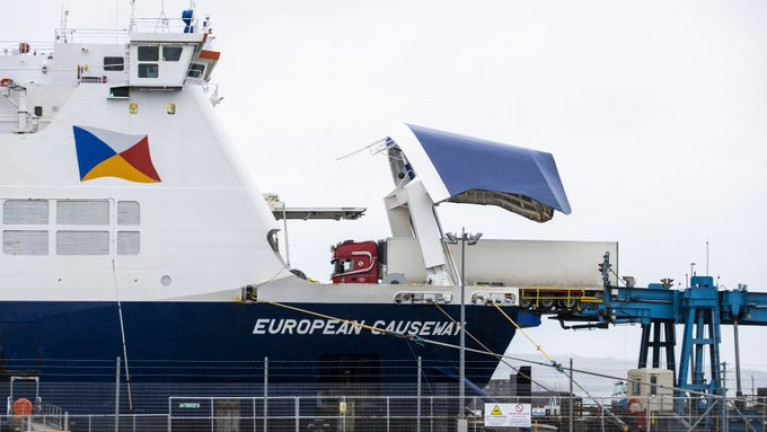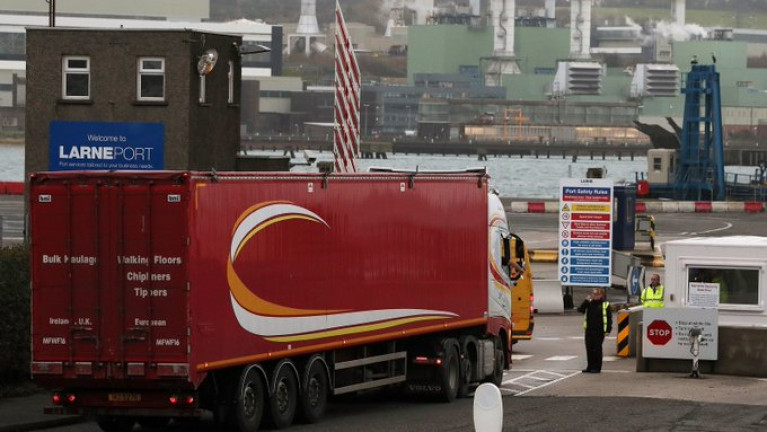Displaying items by tag: Protocol
N.I. Protocol: EU Proposes Legal Footing for 50% Cut in Formalities
A proposal by the EU to make a 50% cut in customs formalities on goods moving from Britain to Northern Ireland become a legal obligation, RTÉ News understands.
EU negotiators want the offer to be legally enshrined in a formal co-decision with the UK in order to remove any doubt that the offer to cut customs formalities is meaningful.
The Northern Ireland Protocol requires checks and controls on goods moving from Great Britain to Northern Ireland so as to avoid the need for a hard border on the island of Ireland.
The UK and unionists want the Protocol to be renegotiated or scrapped altogether because of the disruption to trade and the impact on the unionist sense of identity.
The UK's chief negotiator David Frost has so far dismissed the EU's offer to cut formalities by 50%, arguing that it would not represent a significant cut in the process of moving goods between Great Britain and Northern Ireland.
For much more click here.
British Brexit Minister Says Protocol Deal Possible by Christmas
The UK's Brexit minister David Frost has said that his government's preference is to strike a deal to improve post-Brexit trade arrangements for Northern Ireland and that agreement can be reached by Christmas.
Britain and the EU agreed last week to intensify efforts to solve issues around the Northern Ireland Protocol.
The EU cautiously welcomed a change in tone from London, though Mr Frost said "significant gaps" remained.
"I think it can be done, whether it will be done is another question," Mr Frost told BBC Northern Ireland when asked if a deal could be reached by Christmas.
He added that triggering emergency safeguard measures remains "a very real option".
Article 16 of the protocol allows either side to unilaterally suspend elements of the deal if it creates serious economic, societal or environmental problems.
The arrangement effectively keeps Northern Ireland inside the EU's single market for goods, resulting in some checks for products crossing the Irish Sea from Great Britain.
RTE News has more on the protocol.
European Union Seeks Staff at Ports to Ensure Implementation of Northern Ireland Protocol
The EU is seeking to have 15 customs and veterinary staff working alongside UK officials at ports and Belfast Airport to ensure the proper implementation of the Northern Ireland Protocol, RTÉ News understands.
In return, the EU would drop an earlier request to have a physical office in Belfast.
The issue was raised during a meeting this morning of the EU-UK Joint Committee, which officials have described as positive and constructive.
One official cautiously described the encounter in London as a potential "turning point" in the process of both sides having to agree how to implement the Protocol, which provides for customs and regulatory formalities on goods arriving in Northern Ireland from Great Britain, will work.
The meeting was led by the European Commission executive vice-president Maros Sefcovic and Michael Gove, a minister in the Cabinet Office.
More on this latest development here.































































